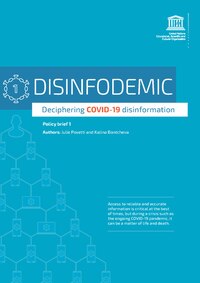
Photo from wikipedia
An infodemic caused by a rampant spread of a mixture of correct and incorrect information in a connected world creates uncertainty about and dismissal of proven public health measures. Two… Click to show full abstract
An infodemic caused by a rampant spread of a mixture of correct and incorrect information in a connected world creates uncertainty about and dismissal of proven public health measures. Two key factors that can influence COVID-19 preventive behaviors are information and self-efficacy. Misinformation (inaccurate or misleading information) can modify people’s attitudes and behaviors and deter them from following preventive behaviors. Self-efficacy, on the other hand, has been linked to the likelihood to engaging in preventive behaviors. This cross-sectional study used a nationally representative survey of Americans from 2020 to determine the associations between (1) COVID-19 news sources and COVID-19 misinformation and (2) COVID-19 misinformation and COVID-19 prevention self-efficacy, using multivariable logistic regression. Results indicate that reliance on conservative sources for COVID-19 news is significantly associated with endorsing COVID-19 misinformation. In contrast, reliance on liberal sources, mainstream print, or social media for COVID-19 news are significantly negatively associated with endorsing COVID-19 misinformation. Furthermore, endorsing COVID-19 misinformation is related to low COVID-19 prevention self-efficacy, which, in turn, can modify COVID-19 preventive behaviors. These findings suggest that customizing health messages to debunk misinformation and increase self-efficacy for preventive behaviors can motivate individuals to comply with preventive behaviors and protect themselves from COVID-19.
Journal Title: Journal of Health Communication
Year Published: 2021
Link to full text (if available)
Share on Social Media: Sign Up to like & get
recommendations!